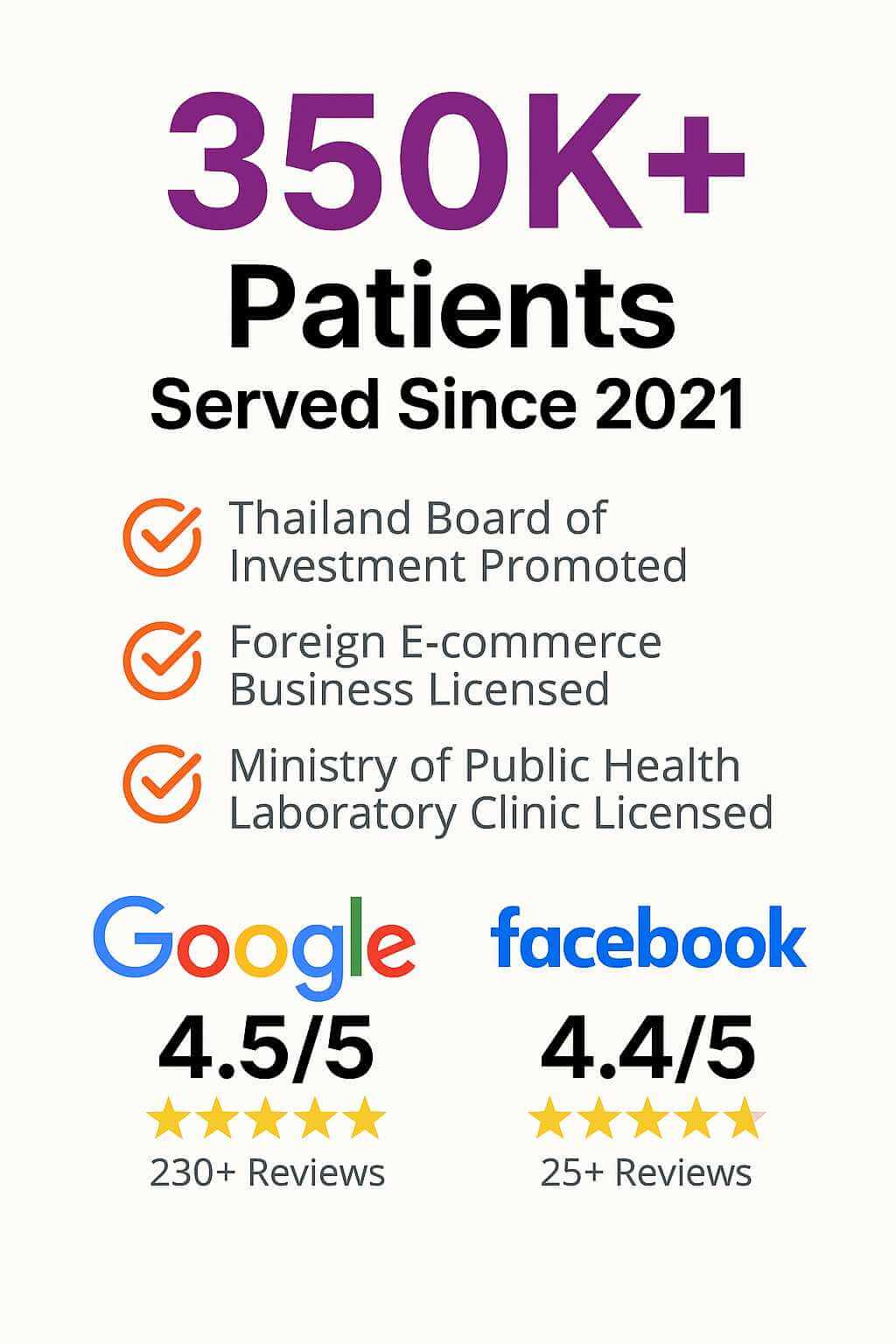
Mental health check-ups are just as important as physical ones, here is why
When we think about health check-ups, most of us picture blood tests, blood pressure readings, and physical examinations. These are important —
Experience MedEx Seamless Care Delivery — 10% OFF on Your First Appointment - Use 'TRYMEDEX' Coupon Code on Checkout


Prostate health is a vital aspect of overall well-being, yet it often remains overlooked until problems arise. Understanding the importance of prostate health and taking proactive measures to maintain it can significantly impact men’s quality of life. In this article, we delve into the intricacies of prostate health, common conditions, and the essential truth about […]

MedEx is a one-stop destination when it comes to medical tourism and digital specialized health care services. MedEx serves as a connector between patients and trusted world-class health service providers.

Prostate health is a vital aspect of overall well-being, yet it often remains overlooked until problems arise. Understanding the importance of prostate health and taking proactive measures to maintain it can significantly impact men’s quality of life. In this article, we delve into the intricacies of prostate health, common conditions, and the essential truth about prostate cancer.
The prostate gland, a walnut-sized organ located just below the bladder and surrounding the urethra, plays a crucial role in reproductive and urinary functions. Given its location, the prostate can be examined through a digital rectal examination (DRE), an essential aspect of men’s health assessments. Despite its small size, the prostate has significant implications for men’s health.
One of the primary functions of the prostate is to produce seminal fluid, which nourishes and transports sperm during ejaculation. This fluid helps protect sperm and enhances their motility, increasing the chances of successful fertilization.
The prostate surrounds the urethra, the tube responsible for carrying urine from the bladder out of the body. A healthy prostate ensures proper urinary function by exerting pressure on the urethra to maintain urinary flow and control.
Benign Prostatic Hyperplasia (BPH): This condition, often referred to as an enlarged prostate, is common among aging men. It can lead to urinary symptoms such as frequent urination, urgency, weak urine stream, and incomplete emptying of the bladder.
Prostatitis: Prostatitis encompasses a range of conditions characterized by inflammation of the prostate gland. Symptoms may include pelvic pain, urinary discomfort, and sexual dysfunction. Prostatitis can be acute or chronic, bacterial or non-bacterial in nature.
Prostate Cancer: Among men, prostate cancer is one of the most prevalent cancers worldwide. While it often grows slowly and may not cause significant harm, some forms can be aggressive and require prompt treatment. Early detection through screenings such as prostate-specific antigen (PSA) tests is crucial for effective management.
Urinary Problems: Prostate cancer can manifest as urinary difficulties, including increased frequency, urgency, weak urine flow, or trouble initiating or stopping urination. These changes may indicate prostate enlargement or obstruction caused by cancerous growth.
Hematuria and Hematospermia: The presence of blood in the urine (hematuria) or semen (hematospermia) may signal underlying prostate issues, including cancer. While these symptoms can have various causes, they should prompt further evaluation by a healthcare professional.
Erectile Dysfunction: Prostate cancer may impact erectile function, leading to difficulties achieving or maintaining an erection. While erectile dysfunction can stem from multiple factors, including psychological and vascular issues, it warrants consideration in the context of prostate health.
Pelvic Pain and Discomfort: Persistent discomfort in the pelvic region, lower back, hips, or thighs can be indicative of advanced prostate cancer. Such pain may result from tumor growth pressing on nearby nerves or tissues, necessitating medical assessment for proper diagnosis and management.
Bone Pain and Fractures: Advanced prostate cancer can metastasize to the bones, causing localized pain, particularly in the spine, hips, or pelvis. Fractures may occur due to weakened bones (osteoporosis) resulting from cancer-induced bone loss, warranting prompt medical attention.
Healthy Dietary Habits: Embrace a diet rich in fruits, vegetables, whole grains, and lean proteins. Incorporating foods high in antioxidants, such as tomatoes, berries, and green leafy vegetables, can help combat oxidative stress and reduce cancer risk.
Lycopene-Rich Foods: Tomatoes and tomato-based products are abundant sources of lycopene, a potent antioxidant associated with lower prostate cancer risk. Including cooked or processed tomato products in your diet may confer protective benefits.
Omega-3 Fatty Acids: Incorporate sources of omega-3 fatty acids, such as fatty fish (salmon, mackerel, sardines), flaxseeds, and walnuts, into your meals. Omega-3s possess anti-inflammatory properties that may help mitigate prostate inflammation and lower cancer susceptibility.
Limit Red Meat and Dairy Consumption: High intake of red meat and dairy products, especially those high in saturated fats, has been linked to an increased risk of prostate cancer. Opt for plant-based alternatives and lean protein sources to reduce your exposure to potential carcinogens.
Regular Physical Activity: Engage in regular exercise to maintain a healthy weight and reduce prostate cancer risk. Aim for at least 150 minutes of moderate-intensity aerobic activity per week, supplemented with strength training exercises for overall fitness.
Pelvic Floor Exercises: Incorporate pelvic floor exercises, such as Kegels, into your routine to strengthen pelvic muscles and improve urinary continence. These exercises can help alleviate symptoms of prostate enlargement and promote urinary function.
Maintain a Healthy Weight: Obesity is associated with an increased risk of prostate cancer and other health complications. Strive to achieve and maintain a healthy weight through a combination of balanced nutrition and regular physical activity.
Limit Alcohol and Tobacco Use: Excessive alcohol consumption and smoking have been linked to elevated prostate cancer risk. Practice moderation when consuming alcohol and consider quitting smoking to reduce your risk of developing cancer and other health conditions.
Regular Screening and Check-ups: Starting around age 50, discuss prostate cancer screening with your healthcare provider. Screening may involve prostate-specific antigen (PSA) blood tests and digital rectal examinations (DREs). Individuals with a family history of prostate cancer or other risk factors may require earlier or more frequent screenings.
Stress Management: Chronic stress can weaken the immune system and contribute to various health issues, including cancer. Incorporate stress-reduction techniques such as mindfulness, meditation, yoga, or deep breathing exercises into your daily routine to promote overall well-being.
Empower yourself with knowledge about your health to proactively safeguard your well-being and minimize the likelihood of prostate-related issues. Your health is invaluable, and staying informed serves as the cornerstone of a healthier tomorrow.
Visit us at MedEc Clinic Lab for a comprehensive checkup and consultation with our experienced doctors. Conveniently situated in downtown Bangkok at Trendy Building, Sukhumvit 13, Bangkok, booking an appointment is simple. Whether you prefer to schedule ahead or walk in, we’re here to support your journey towards optimal health.

When we think about health check-ups, most of us picture blood tests, blood pressure readings, and physical examinations. These are important —

When your doctor orders “routine blood work,” you may later receive a sheet filled with numbers, abbreviations, and reference ranges. For many

What exams to expect at every life stage – from your 20s to your 70s and beyond At MedEx, we believe in
Find quality services, specialists, procedures and more from the comfort of your home. All you need to do is enter a keyword or phrase describing what you are looking for.
DOWNLOAD MEDEX ONE APP
MedEx decentralizes the care continuum as a one-stop care navigation concierge, transforming the care delivery model through its Pan-Asia provider aggregation platform, primary satellite clinics, telemedicine services, and at-home health care solutions.







MedEx connects you with world-class health care providers across borders, makes medical travel simple, low-cost and transparent and offers premium primary care.


© 2020-26 MedEx Ventures Co., Ltd.
